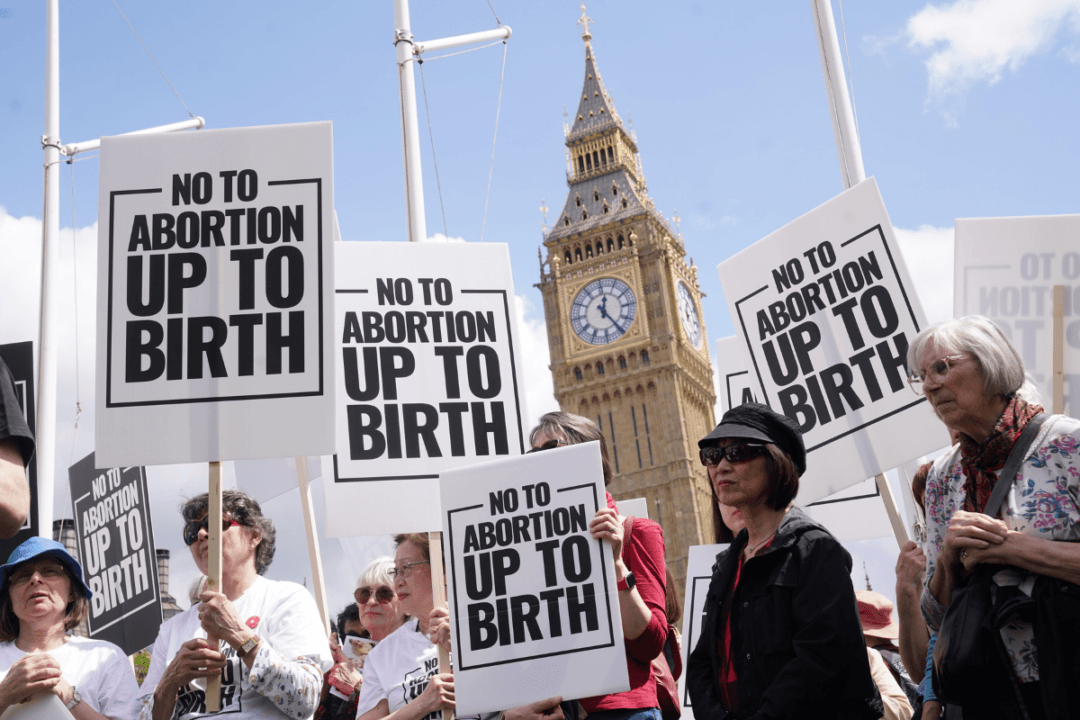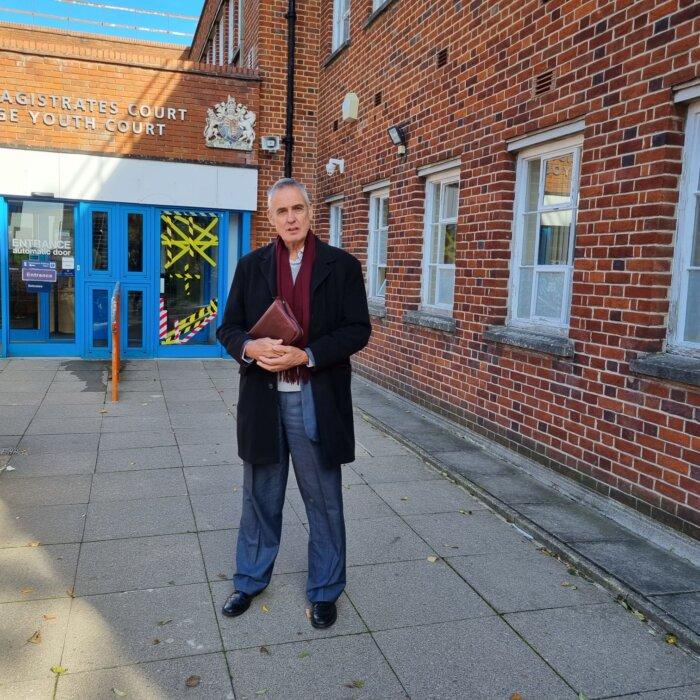Buffer zones around abortion clinics will come into force in England and Wales from Oct. 31, with anyone found in breach of the law facing unlimited fines, the Home Office has announced.
The department said in a statement issued on Wednesday that the law will apply within a 150-metre radius of abortion providers and will make it illegal for a person to do anything deemed to be intentionally or recklessly influencing a woman’s decision to have an abortion.
Obstruction or doing anything that “causes harassment or distress” to a woman seeking an abortion will also be illegal, with the same protections applying to staff of the clinics.
Safeguarding minister Jess Phillips said in a statement that accessing abortions is a “fundamental right” for women in the UK, “and no one should feel unsafe when they seek to access this.”
Phillips added: “We will not sit back and tolerate harassment, abuse and intimidation as people exercise their legal right to healthcare, which is why we have fast-tracked this measure to get it up and running without further delay.
“For too long abortion clinics have been without these vital protections, and this government is determined to do all we can do to make this country a safer place for women.”
Criminalising Support for Women
The relevant legislation for buffer zones in England and Wales is covered under the Public Order Act 2023, measures which were voted in under a Conservative government with cross-party support.Pro-abortion campaigners have said the legislation was needed to protect women and clinic staff from harassment, but pro-life groups have said the zones will mean that offering vital, last-minute support to women will be criminalised.
The spokeswoman for Right to Life UK, Catherine Robinson, said in a statement, “Hundreds of women have been helped outside abortion clinics by pro-life volunteers who have provided them with practical support, which made it clear to them that they had another option other than going through with the abortion.”
Law ‘Open to Misinterpretation’
The British Pregnancy Advisory Service (BPAS), which describes itself as the UK’s leading abortion service provider, said the implementation of buffer zones “can’t come soon enough.”BPAS CEO Heidi Stewart said in a statement that the Home Office should remember “that the law is designed to address the harm caused by so-called silent prayer and ‘consensual communication,’“ and that ”all forms of harassment are prohibited outside abortion clinics.”
While Section 9 of the Public Order Act does not mention prayer explicitly, groups like Right to Life UK said terms used in the law are vague and raise concerns silent prayer could be made illegal, as well as consensual communication.
The Alliance for Defending Freedom (ADF) UK is also concerned that the ban on “influencing” is too broad and could be used to prosecute people engaging in mutually consensual conversation or even silent thought.
ADF UK’s Legal Counsel Jeremiah Igunnubole said in a statement, “Good law should be clear, consistent and predictable but the buffer zones legislation set to be enacted is vague and broadly drafted.”
Arrested for Silent Prayer
Igunnubole added that while the government had heeded calls to refrain from naming silent prayer and consensual conversations as criminal offences, “the threshold for criminality remains intolerably unclear.”“It is now incumbent on the CPS and the College of Policing to provide guidance that reflects existing protections for freedom of thought and speech – keeping the UK in line with international legal standards. Thoughtcrimes are for 1984 – not 2024,” he said.
The College of Policing and the Crown Prosecution Service (CPS) will be publishing guidance for police and prosecutors ahead of Oct. 31, which should provide clarity and consistency on its enforcement.







